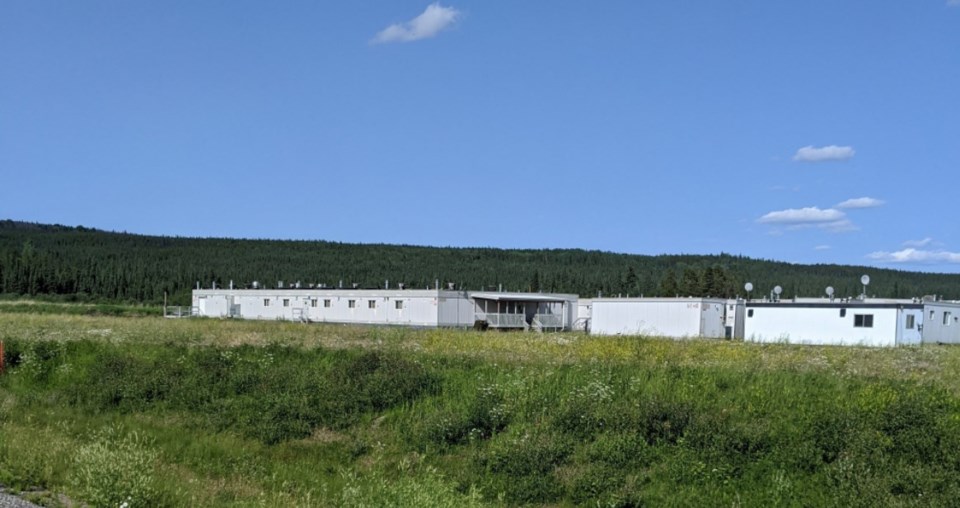Pink Mountain lodge owner Melody Magaton says another work camp along the Alaska Highway could put her out of business, and approached the Peace River Regional District at their November 16 meeting to explain the situation to board directors.
The 200 to 300 person work camp would be located near Attic Creek Road along the highway and would house workers for oil and gas development in the region. The regional district did approve the permit after a brief discussion by directors.
Fort St. John Mayor Lilia Hansen and Area B director Jordan Kealy agreed that it isn’t the regional district’s mandate to decide who can run a business, and that they need to focus on zoning requirements, which the camp did meet.
“We can’t say who can operate a business and who can’t, if it fits with our zoning,” said Hansen. “As much as I would love to give preference to those that are in the local community, those that have invested, you know, with their blood and sweat and tears to be here.”
However, with a crackdown on short-term rentals by the province, Hansen said she expects an increase in a need for camp services.
“We do as much as we can to try and make things work for our communities and for the region and we do have to stay within our wheelhouse,” said Kealy.
The regional district does have final say on the camp, as its location requires approval from the Ministry of Transportation.
Chetwynd Mayor Allen Courtoreille opposed approving the camp, and said the decision goes beyond policy - it’s about people and protecting local history.
“This is one of our major throughways into the North and it's been part of our history for years and Pink Mountain for years, we've hunted in that area, we've stayed at the lodge, and I'm certain you know a person that’s stayed at the lodge,” he said.
The camp permit application was submitted by Right Choice Camps and Catering, an Alberta-based business. They submitted written comments to the regional district, making their case for the camp.
“I have included two First Nation groups in our proposed camp operations with direct inclusion and compensation for both communities,” noted their comments.
“We can assure you that each of the concerns of our competitors have or will be addressed during the camp construction operations and decommission process,” they added.
Magaton said she and her husband have operated their lodge for 25 years, and while they accommodate tourists from Fort Nelson to Fort St. John, that only accounts for a fraction of their revenue. They heavily rely on industry to keep their doors open, with diesel generator costs sitting at $2,000 a day.
“When you bring in a camp like that, there is no way that we as locals will be able to survive,” said Magaton. “One of the misconceptions is that the people that want to get permits over the years have said is that we can’t accommodate to the status that they can - that there has to be new rooms or VIP dorms.”
“This is simply not true, I have actually sent pictures to the regional district of the rooms that we have. And when you see those pictures, you see that our rooms match the nicest rooms in Fort St. John,” she added, noting the money they make goes back into the community.
While work camps are already operating in the area, Magaton says one more would force them to close their doors for good.
Abandoned work camps are also an eyesore for the Peace Region, noted Magaton, alleging that the companies who run them close shop as soon as profits drop, with no regard for tourism.
“When camps roll in and take the money out of the community, the community’s gone,” she added, noting many lodges north of Fort Nelson are boarded up, casualties of industry.
G.N.S Industrial Trailer Services also opposed the new camp and penned a letter to the regional district on September 12, and says it would cripple existing local businesses.
“To hear now that a new camp is being considered is alarming as those of us that have worked through the slow times and kept our doors open to support business in the area will be adversely affected if business picks up again only to be diverted to a new facility allowed to open right beside our operations,” wrote G.N.S. General Manager Josh Skoreyko.
Royal Camp Services also sent a letter, on behalf of Blueberry River First Nations Royal Camp and Catering, noting that the new camp would be detrimental to them.
“As a concerned camp operator of Lodge 147 we believe this application for the addition of a 300-bed camp within an over-saturated area, brings several negative impacts to the area,” wrote CEO Jon Warren.
“There should be oversight by the Ministry of Environment and The Ministry of Indigenous Relations and Reconciliation for direction on consultation with the Blueberry River First Nation,” he added.



